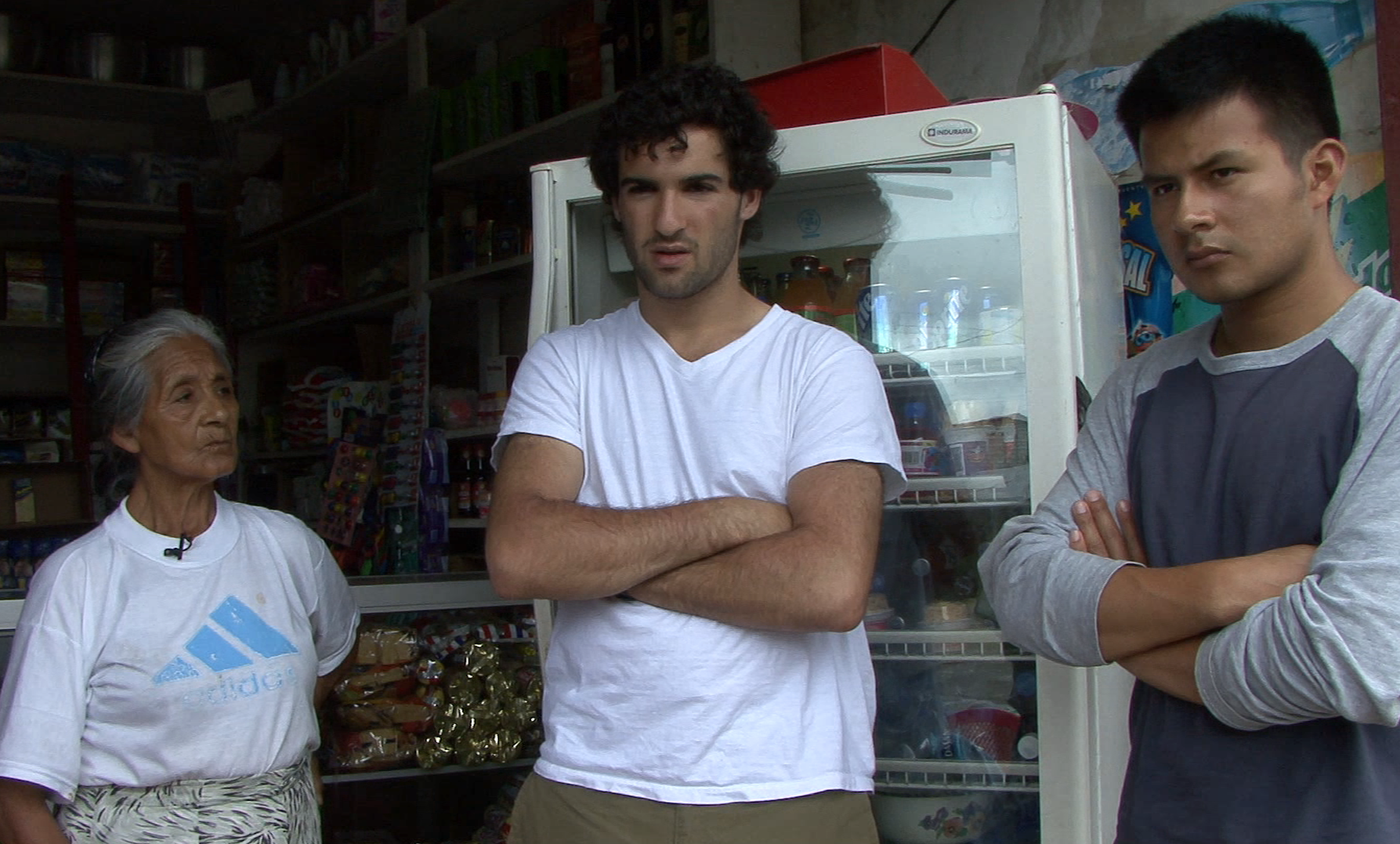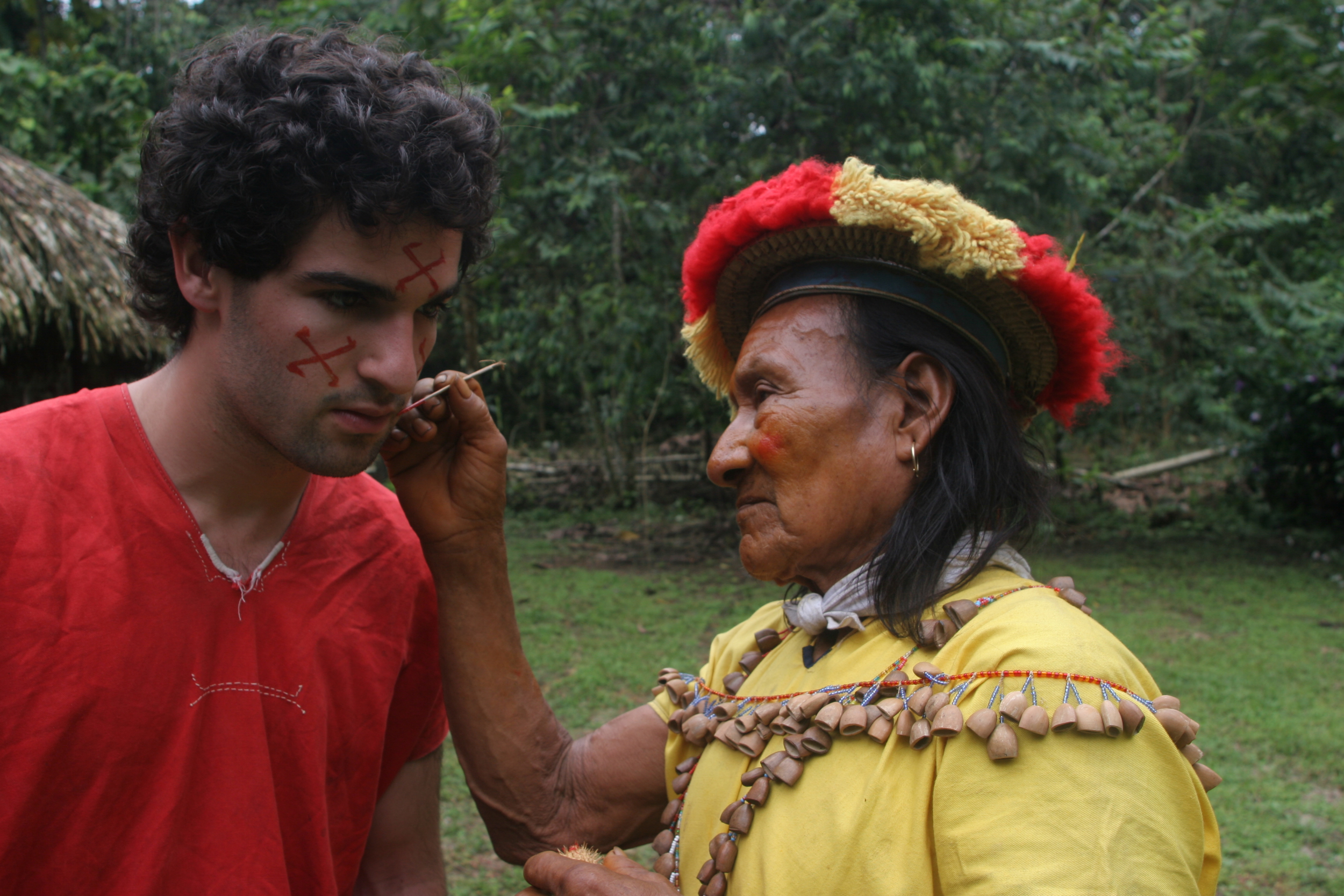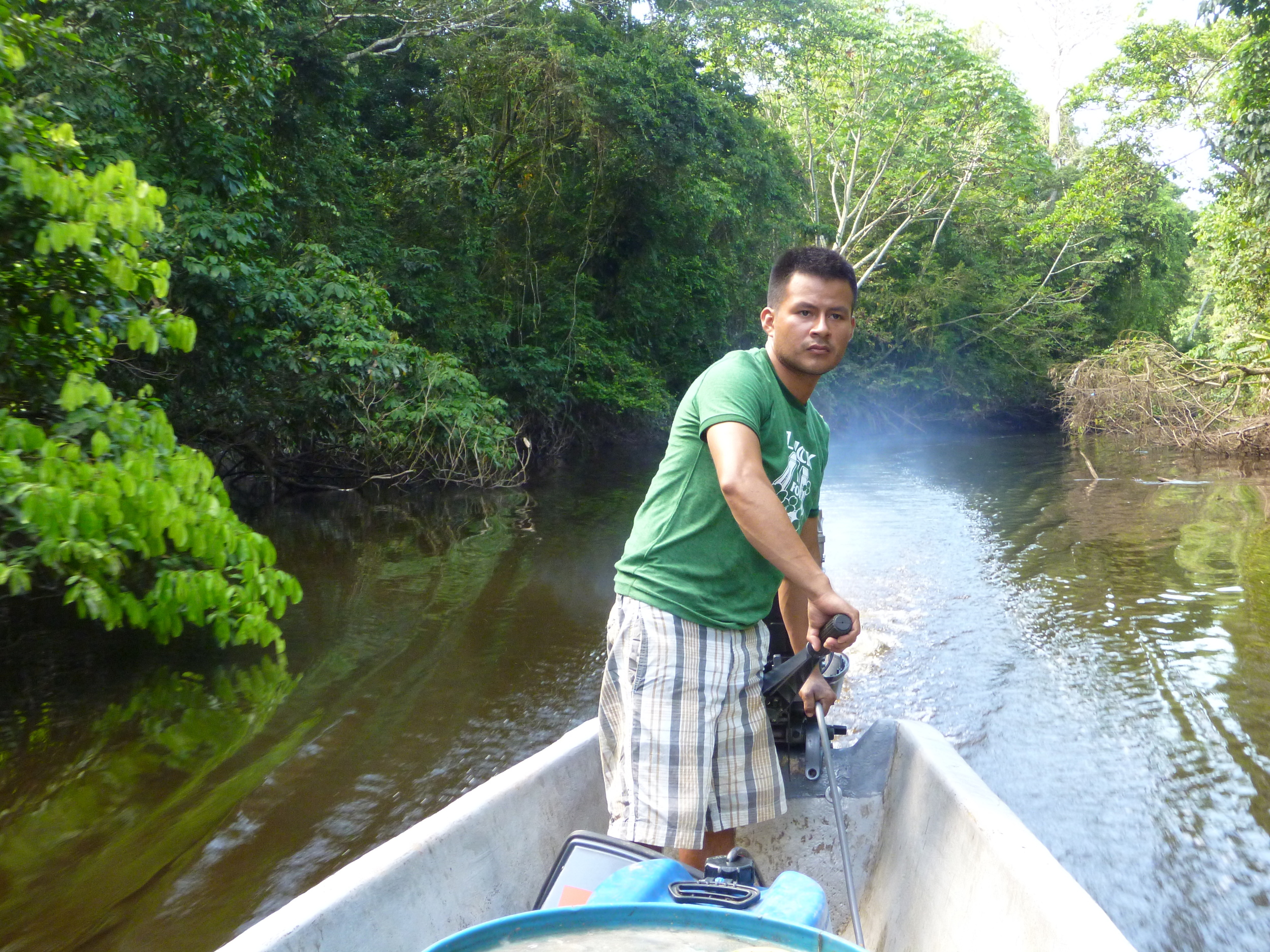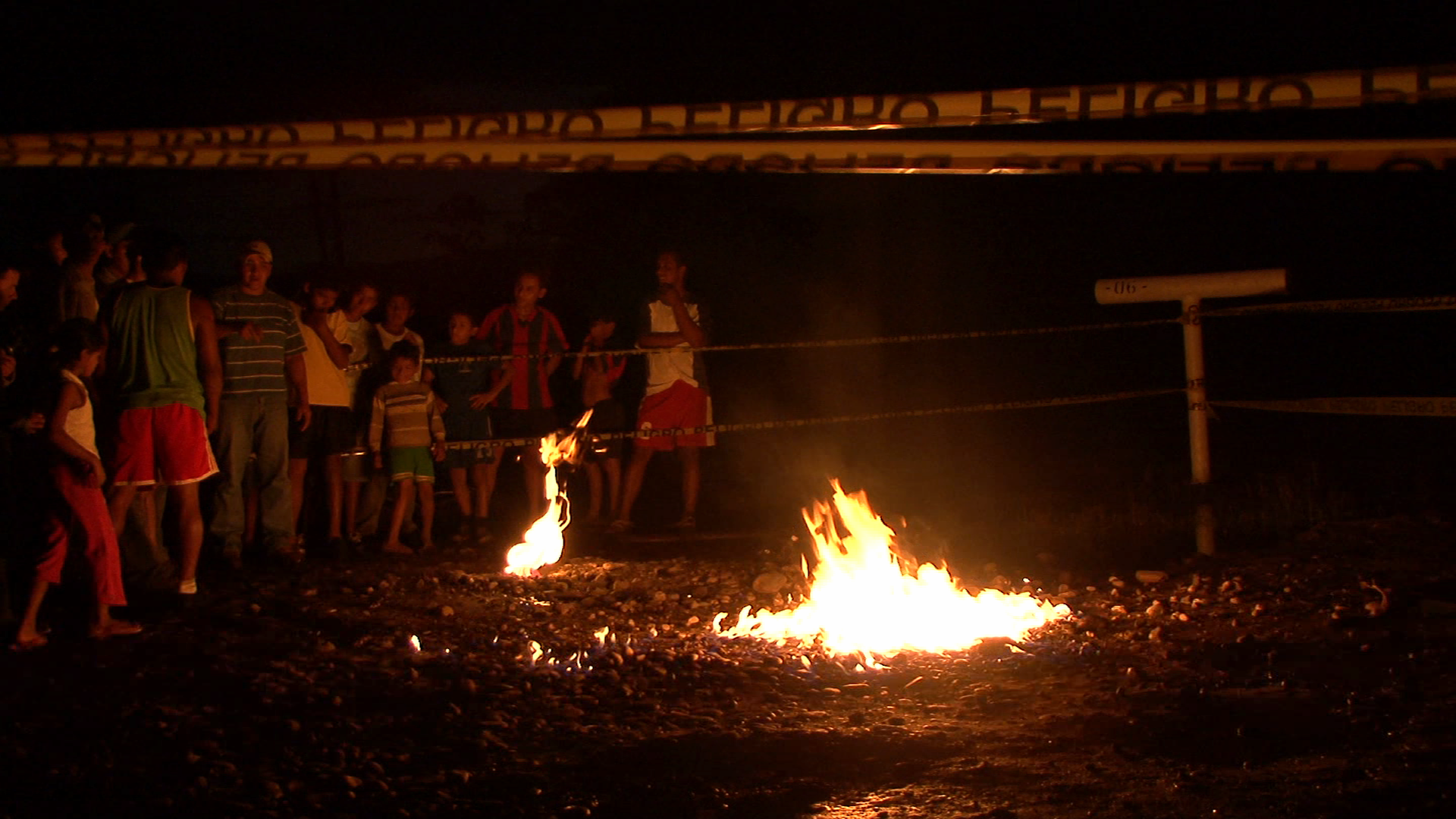ABOUT THE DOCUMENTARY
Oil & Water is the true story of two boys coming of age as they each confront one of the world’s worst toxic disasters. Hugo and David were born on opposite ends of the oil pipeline. Hugo comes to America to fight for the survival of his Cofan tribe in the Ecuadorian Amazon, while David goes to Ecuador to launch the world’s first company to certify oil as “fair trade.” Their journeys lead them to explore what could be a more just future, not just for the Cofan, but for all people around the world born with oil beneath their feet.
Hugo Lucitante with Miranda Detore and Kofi Annan at the UN in 2000.
When Hugo Lucitante was 10 years old, his tribe made a desperate decision. Fearing extinction, they sent Hugo to be educated in the U.S., in hopes that he would return to lead them into a better future. A decade later, we follow Hugo as he returns to the Ecuadorian Amazon to meet his destiny, armed only with a high school diploma.
David Poritz was just a sixth-grader when he learned of the oil disaster in Hugo’s homeland. With the blessing of his mother, David started a humanitarian project that led him away from his home in Amherst, Massachusetts to spend much of his youth in the Amazon. The two teenagers meet by chance during a shared canoe ride, and then again, when David travels with Hugo to tour the damage caused by the 18 billion gallons of oil waste that was dumped on Hugo’s ancestral lands. The area’s people experience unexplainable rashes, childhood deformities and ballooning cancer rates. The film follows the boys back to the U.S. as their lives and the situation in Ecuador get more complicated.
While still a college student, David launches the world’s first international company to certify oil as “fair trade,” meaning that it is drilled in a safer and more ethical way. He and his seven employees are in the process of certifying their first customer, Petroamazonas, the state-controlled oil company of Ecuador. David’s approach could be a whopping game changer for the oil industry. Oil & Water explores what could be a revolution as it’s being lead by a 22-year-old.
Hugo struggles with culture shock, the demands of learning to be a Cofan tribal leader, and also becoming a husband. He marries Sadie, a Lebanese-American girl and she moves from Seattle to make a home with Hugo in the jungle. Back in the states, financial pressures force Hugo to shoulder two minimum wage jobs, even as the tribe looks to him for help fending off oil prospectors pushing deeper into the rainforest. A significant oil deposit lies under Hugo’s village, and it’s only a matter of time before his world could be lost forever.
Can Hugo become the leader his tribe so urgently wants him to be? Will David clean up one of the world’s dirtiest industries? Oil & Water is an intimate portrait of two young people finding their voices and trying to beat incredible odds. Shot over the span of six years, Oil & Water is an independent documentary produced and directed by Laurel Spellman Smith and Francine Strickwerda of Stir It Up Productions, a Seattle-based documentary company. The film was funded by Independent Television Service (ITVS) and the John D. and Catherine T. MacArthur foundation and made for broadcast on PBS.
Francine and Laurel in Ecuador, 2007
Director’s Statement
A documentary filmmaker once said that when you choose an idea for a film, you need to date it a while, and make sure you can fall in love with it. Because you will be eating, drinking and sleeping with it for a long time. It made us laugh, because it’s so true. It's also about how a human story can knock the wind out of you with its brilliance, and then how it will haunt and nag you until you have no choice but to make your film. That’s how we got to making Oil & Water, which we began filming in 2006.
One morning we found an article in the Seattle Times telling the story of a teenager from an Amazonian tribe who was graduating from a local high school. Fearing their own extinction, the Cofan tribe of Ecuador, numbering less than 2,000 people, had sent 10-year-old Hugo Lucitante from Ecuador to the U.S. to get a Western education.
We made a few phone calls and then later that evening, we were on our way to the airport with a camera. Hugo’s entire family arrived in Seattle to see him march in his graduation ceremony. He was the first Cofan to graduate from an American high school, and their hopes were riding on him.
We learned that an oil disaster had occurred on Hugo’s ancestral land, and the situation was so bad the press called it a “rainforest Chernobyl.” A few months later, we ran across a story about a young American from Amherst, Massachusetts, who had worked on the legal case against Texaco. A class-action lawsuit dealing with the oil disaster had been filed in Ecuador, and teen-age David Poritz had been there to witness it. David’s experience on the case led him to do humanitarian aid work in the jungle, and as a teenager he had ventured places only the most seasoned of travelers would go, often alone.
We saw many parallels in Hugo and David’s stories. Here were two boys, each with a mythic backstory, who almost seemed to have traded places in the universe. They were taking on a Goliath of our times. Hugo and David were both deeply affected by what had happened in Ecuador, and we wondered if we could tell the story of the disaster through their experience. We like to say that we are from the “Mary Poppins School” of filmmaking and that a spoonful of sugar helps the medicine go down. Here was the perfect chance to tell a character-driven environmental story that was hopeful and inspirational.
We started filming David at his high school graduation. David was planning to lead a group of students on a “toxic tour” in Ecuador the following month, and we decided to ask if Hugo could come along. Both boys were eager to make the trip together, and it turned out they had already met. Hugo remembered his surprise at finding a young American traveling solo in the jungle, and had given him a ride in his canoe.
Shortly before we left for Ecuador, our director of photography let us know he wouldn’t be able to make the trip. As filmmakers, we were a team of two producer/directors with years of experience in the field, but little technical knowledge. That was about to change. With our plane tickets in hand and our bags packed, we didn’t have time to find a new photographer, so we put ourselves through a quick camera, lighting and sound boot camp and we headed for Ecuador.
Looking back, we had no idea that Hugo and David would become such fascinating young men. We didn’t realize just how close the oil companies were to making another assault on Cofan land. And we certainly didn’t imagine that we’d be telling the story of a startling effort to revolutionize the oil industry.
We are hopeful that the Cofan will be able to save their culture and their land, and we are in awe of their strength and perseverance. It’s been an honor to spend the past seven years following Hugo and David, and we are grateful to them for sharing their stories.





